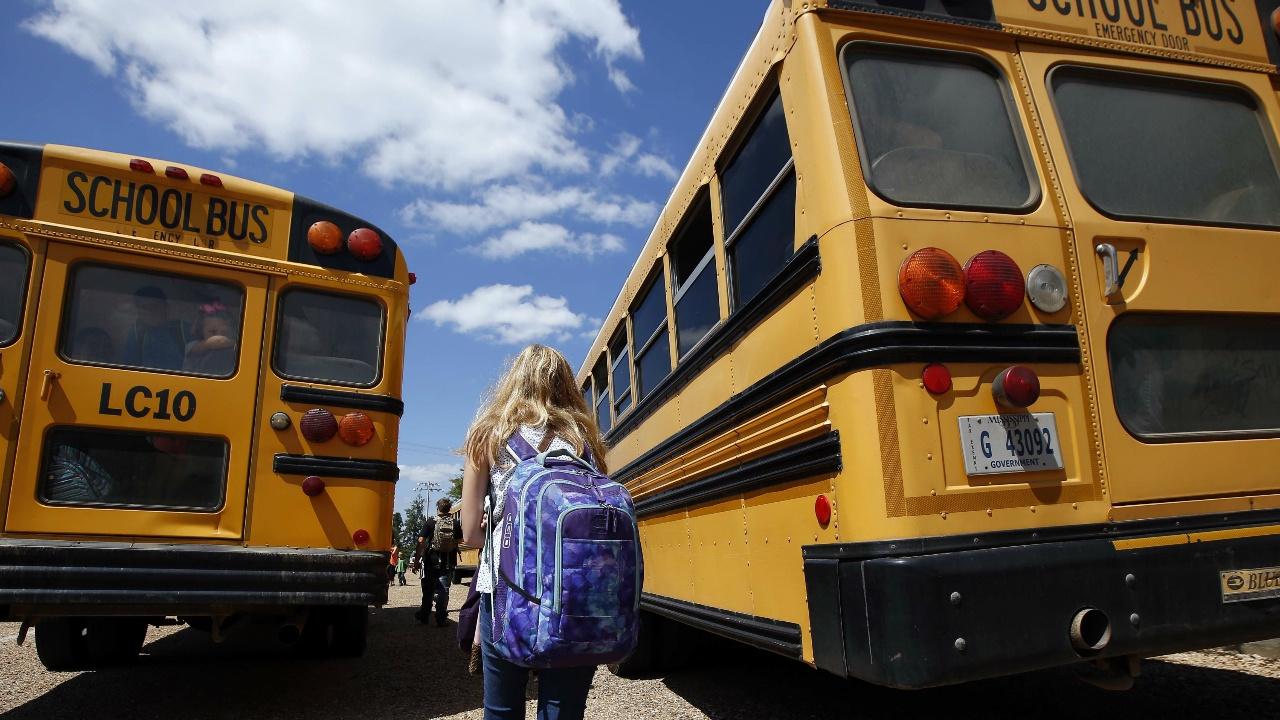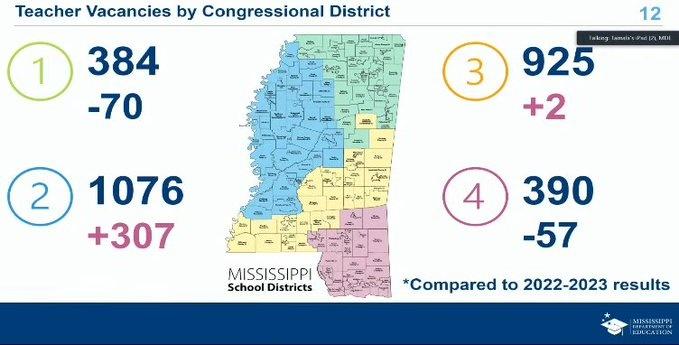Teaching vacancies grew by 7% across the state in comparison to the 2022-2023 school year, representing just under 2,800 open positions.
But even amid a continued rise in vacancies, MDE data shows they’re not distributed evenly by neither region nor grade level.
At more than 800 vacancies each, elementary and high schools more than doubled the open teaching positions at Mississippi middle schools. STEM courses like general sciences, biology, chemistry and math also saw high-single to double digit increases over last year.
Toren Ballard, executive director of K-12 Education Policy at Mississippi First, says state officials need to do more to convince teachers to stay.
“I think the biggest takeaway from this data is that the positive effects of the 2022 teacher pay raise are starting to wear off,” he told MPB News. “Due to inflation the average teacher salary in Mississippi is now worth $2,000 less than when the pay raise first went into effect. This is critical because teachers consistently rank compensation as the most important factor in determining their career plans.”
In a near unanimous, $246 million appropriation, Mississippi’s legislature approved an average annual raise of more than $5,000 for the 2022-2023 school year, as well as yearly increases of $400 and larger bumps of $1,200 to $1,350 every five years.
But Mississippi remains close to bottom nationally for public school teacher compensation, and Ballard worries what continued challenges to both recruitment and retention will mean for students themselves.
“When districts have vacancies they’re more likely to have to rely on teachers who either don’t have much experience teaching in the classroom, or those who are teaching a subject they aren’t licensed for,” he said. “While we don’t know enough to say there’s causation here, we do generally see a correlation between student test scores and the percentage of teachers in a given district that are inexperienced or teaching a subject they don’t have a license in.”
Courtney Van Cleve, executive director of educator continuum at MDE, says the data is a good jumping off point to better understand the vacancies -- and that certain programs have been expanded to try and help address them on a large scale.
“With elementary education, in terms of recruitment, we’ve been working with our Mississippi universities to offer increased pathways for individuals intending to become elementary teachers,” she told MPB News, adding the agency has also approved alternate pathway programs where teachers can obtain certification in subjects other than those they currently teach.
“We’re already at 10 pathways with our universities and expect more on that front. With special education recruitment, we’ve requested the legislature to approve continued funding for the Mississippi teacher residency which offers special ed licensure.”





